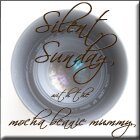 |
| Photo Credit: Charles Lamb Pub website |
After the funeral , sitting on a crowded tube train into town, and standing still like a plastic mannequin on a grimy London escalator I was thankful to be alive. The Mellow Mum can no longer experience this existence. I am thankful for the daily grind. I feel each breath of winter air as I emerge to ground level at Angel station, I am alive. I am re-evaluating my life. I am lucky, lucky, lucky. There is no time to be wasted; now is the time to live.
Or maybe the future will start when I wake up in the morning. Right now I really want to go to my room and be on my own, with some maudlin music and a bottle of wine. But I don’t have a room. I am in my late thirties now and I don’t have my own bedroom. Suddenly that seems peculiar, absurd. So, to be alone, I went to the Charles Lamb pub. It is full of people. I try to cry secretly. Oh me! I wearily and dramatically feel like serenading the many leaded-rectangle paned windows, gently flickering candles and green-painted wooden panels. All of the wobbly rustic tables are taken. I sit on a stool at the bar and order a large red wine.
“We only do wine in one size,” she says. It ain’t large. But it’s large prices; Islington prices.
The melancholy fellow on the bar stool next to me tries to get her attention to order a drink. She looks right through him. I offer him half a smile, apologetically. He is drunk, and considers my smile to be an invitation to initiate conversation.
“What are you thinking about?” He demands of my pensive face. I pay the lady for my wine and take a sip.
“I’m thinking about my friend,” I reply. He nods, sagely.
“Tis the privilege of friendship to talk nonsense, and have that nonsense respected...”*
I can’t help smiling just a little.
“Friends are like table legs; they keep you stable,” I reply. “If one falls off, you wobble.”
He smiles, holds out his hand and introduces himself.
“Charles Lamb, essayist and poet.”
“I thought so,” I replied, shaking his ghostly hand. I could tell by his nineteenth century fashion sense that he was different somehow. “Associated with the romantics, Shelley , Hazlitt, Coleridge and Wordsworth and considered by admirers as “a pre-Victorian sugar daddy distributing kisses and kindliness”.
“Ah, you have heard of me! Yes, Samuel Coleridge is a good friend of mine.” He sits up straight on his bar stool and glows with satisfaction and pride.
“No, it says all that on the chalk board behind you.” I remind him. His pen name was Elia when he lived in Colebooke Row. “I live in Colebrooke Row too.”
“I’m at Colebrooke Cottage!” he exclaims.
“I’m on the canal,” I tell him. “On a boat, near the Islington tunnel.” He eyes me up and down and looks confused.
“You don’t look like a boatwoman.” He expects to see a frilly black sun bonnet and ankle length skirts.
“Well things have changed a bit on the Cut lately,” I explain. He shakes his head and the very old clock behind the bar strikes seven. My kids will be in bed soon. I’m too miserable to handle the chaos of the bedtime routine but I think about making a move.
“Do you know there was a competition to design the Islington tunnel?” He didn’t wait for a reply. “But old James Morgan ended up designing it himself.”
“ I know that it took three years to build,” I offered. He nods.
“All those navvies with their wheelbarrows, horses and explosives; they finished it in 1818. I’ve seen you boat people walking your horses over the top.”
“Yep, there’s no towpath in the tunnel,” I reply. I didn’t tell him that we haven’t got a horse.
I finish my drink in silence as I survey the fairy lights, the ornate mirror and the deliberately scruffy wooden floorboards. It’s intentionally homely like a Hoxton trendy bar, not like a spit and sawdust back street boozer. The people drinking here are young and probably work in media, but it escapes by a hairs-breadth from being swanky (with a silent ‘s’), to being simply cosy for the younger drinker. I feel a little bit old among the other patrons here, but my new friend looks positively ancient.
He decides not to order another drink, stands up to leave and puts on his rather charming hat.
“I always arrive late at the office but I make up for it by leaving early,” he grins.
Maybe it was the fairy lights, maybe it was the wine, but as I follow him out of the door I feel a little bit warmer inside. A chalk board suggests ‘Mulled Cider – the cure for winter blues’. I turn around to look down Elia Street and Charles has silently gone towards home; nowhere to be seen.
*Charles Lamb 1775 – 1834
 |
| http://www.thecharleslambpub.com |













